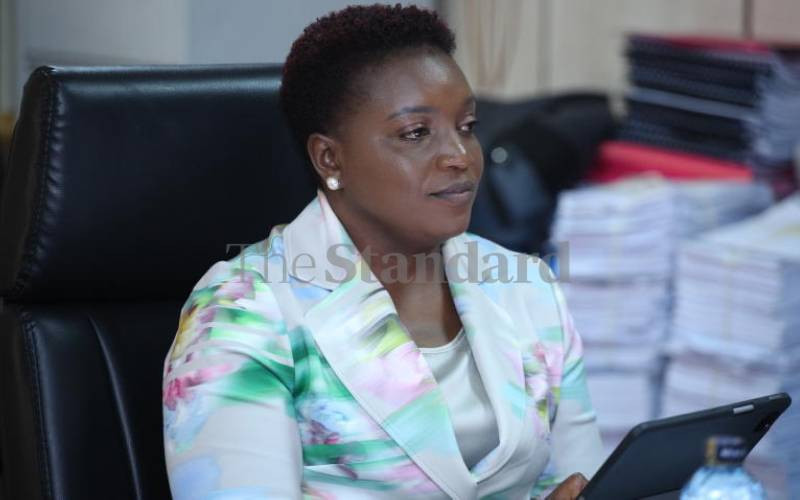
NAIROBI: Nurses and midwives are faced with many challenges despite being the backbone of the health sector. Susan Otieno, the former director of nursing in the Ministry of Health, shed light on some of the issues facing the profession. She spoke to JECKONIA OTIENO.
What is the biggest challenge to nurses within the region?
Shortage of nurses is like a song in this region. For instance, the International Council of Nurses (ICN) recommends that a specialised nurse of paediatrics should be a holder of master‘s degree in nursing but most nurses we use as specialised are still at diploma level, and cannot be counted by ICN which means, essentially we have a shortage.
The other challenge is the working conditions, which are poor due to lack of tools of trade. Poor pay is another challenge because of the perception that many nurses are diploma holders; even with increased education, the perception has not changed.
How can nurses’ strikes be solved?
Strikes are common because of governments not listening to their plight. A study found that a nurse is the most stagnated civil servant in Kenya. A particular nurse, for example, stagnated in one job group for 16 years.
Now, with devolution, salary issues have come up. Nurses do not like going on strike but it is clear that it is the only way through which they can be heard; if leaders can listen then strikes will be no more. In any case, going on strike is a constitutional right. However, no nurse loves to see a patient die.
How would you describe the distribution of nurses in Kenya, having been the director of nursing?
The distribution is not uniform mainly due to political and social interference. When I was the director of nursing, at one time we decided to post people from North Eastern region to their home areas.
They found their way to Afya House and talked to big shots and were redeployed back to urban areas. It is very common to find politicians canvassing for their people to be posted in some areas and if you try to oppose this, they threaten you.
Another instance was when I found a nurse who had trained to work in the ICU at Mathari Mental Hospital instead of Kenyatta National Hospital. This means that urban areas have more nurses while rural have less, and they are not employed according to their specialty.
Is devolution of health good or bad for a nurse?
Devolution of health is good for the sector but bad for nursing. When recruitment was centralised, those with various skills were deployed according to their skills. Currently, counties are employing but not giving these figures to national government because they argue health is devolved. In a nutshell, devolution has more demerits for nurses than merits.
How would you describe nurses training in Kenya versus the intake into the job market?
The uptake of nurses is poor despite the increasing numbers that are being trained every year. Counties have tried to recruit but these are not well-planned. Instead of just focusing recruitment on numbers, it should be focused on gaps that exist. It is very common to find a nurse holding a degree being jobless because the system is looking for cheap labour. And this is common even in private facilities and NGOs.
Brain drain is a problem facing Kenya and the entire region. How can this be solved?
When we opened up upgrading of nurses from certificate to diploma to degree, something strange happened. When we advertised for positions, we had a lot of applications from nurses who were working in private facilities. In public service, they are allowed to go and upgrade something, which is difficult in private facilities. I, therefore, agree that nurses should be allowed to upgrade their careers and their pay be commensurate to that level.
Without this, there will still be migration of nurses to other countries in search of better opportunities. Improving the working environment is also another way to stop flight by nurses.
One of the resolutions is the inclusion of nurses in policy making. Why?
Nurses need representation at the table. There is no way a person can pretend to know nurses and nursing better than the nurses themselves. Nurses can articulate their issues better than any other person. A lion knows the jungle while the hunter knows that the lion lives in the jungle. With nurses at the decision-making table, the issues that affect them can be heard.
What is your take on nurses being blamed for poor service delivery?
Nurses have a duty to provide services, and they can only do so if they have the necessary tools of trade. You find nurses sending patients to go buy gloves or cotton wool not because they want to but because the system has not provided these things. Most health facilities have no accommodation for nurses, which means they have to go to work daily, some travel far.
What is the place of Traditional Birth Attendants (TBA) with the shortage of midwives in mind?
We abolished the TBAs in the system because they messed up maternal and child health. Most TBAs became self-declared gynaecologists and this came with disastrous results. It is for this reason that the system opted for community health workers and community health extension workers.
What is the future of nursing in Kenya?
We are far as a country from meeting the World Health Organisation (WHO) recommended ratios but more needs to be done. If we can stop the haphazard recruitment being witnessed currently, we’ll be on the right path.
Have you not noticed that most nurses are aging and the younger ones are still students. If this is not addressed, we shall have a situation where the shortage will bite hard when the current ones are not replaced due to attrition.
How would you describe nursing currently in the region, beginning with Kenya?
Nursing has come of age and the Government should give nursing the space and respect it deserves. We are tired of being told, we are the backbone of the health system but when it comes to recognition, we fall at the bottom of the ladder. We have to be allowed to tell our story.
 The Standard Group Plc is a multi-media organization with investments in media platforms spanning newspaper print
operations, television, radio broadcasting, digital and online services. The Standard Group is recognized as a
leading multi-media house in Kenya with a key influence in matters of national and international interest.
The Standard Group Plc is a multi-media organization with investments in media platforms spanning newspaper print
operations, television, radio broadcasting, digital and online services. The Standard Group is recognized as a
leading multi-media house in Kenya with a key influence in matters of national and international interest.











